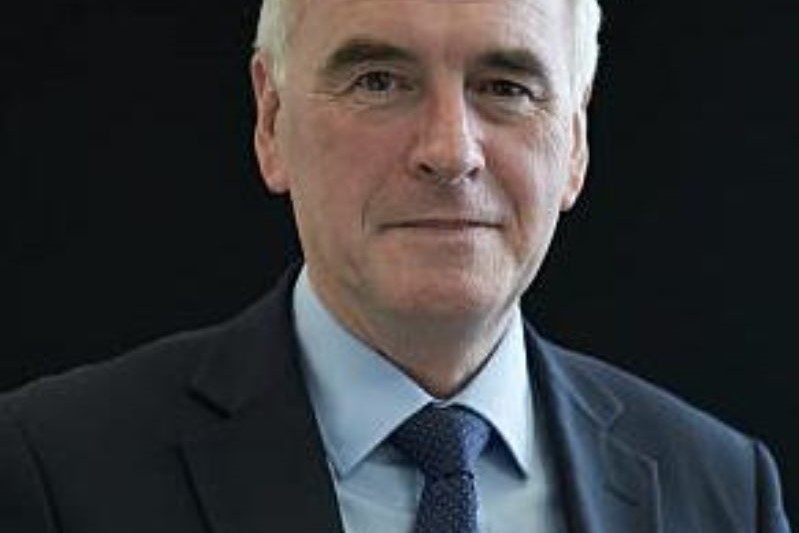Labour claims its plan to nationalise broadband and deliver it to 18m premises will boost the UK’s productivity by £59bn.
Currently, one third of small businesses are struggling with broadband speeds that they describe as “insufficient” for their business needs.
UK productivity grew by less than 1pc over the past year and was completely flat in the three months to September, according to the Office of National Statistics.
UK SMEs have cost themselves £1,268 per second in lost productivity this year – the equivalent of over 16 days so far, according to Sage.
>See also: Business rates reform key, says Labour business chairman Rachel Reeves
Only one in 10 premises in the UK has full fibre compared with 97pc in Japan and about 75pc in Spain.
Mike Cherry, national chairman of the Federation of Small Businesses, said: “Improving digital connectivity should be an urgent priority for all parties vying to lead the next government, so it’s good to see broadband placed front and centre of the agenda in the run up to this election.”
However, the Institute of Directors (IoD) poured cold water on Labour’s plan to provide free broadband to every business in Britain.
Edwin Morgan, director of policy at the IoD, said: “A lack of reliable, fast internet access is a big drag on productivity growth, particularly in rural areas. However, it’s far from clear that nationalisation would be an efficient means to achieve this. Public investment in infrastructure is one thing, but the public sector delivering a utility – for free – is quite another.”
>See also: Small Business Minister Kelly Tolhurst – ‘Tech is key to solving productivity’
However, Alan Laing, UK and Ireland managing director of tech firm IFS, was more upbeat about Labour’s broadband vision.
Laing said: “Core UK industries such as manufacturing are struggling under the weight of Brexit uncertainty, and must utilise technologies like AI and IoT – which depend on connectivity – to drive productivity and bring them on par with global leaders in these sectors. Free, high capacity broadband would help to accelerate the Industrial IoT in the UK and enable manufacturers to claw back a competitive edge at this critical time.
“Markets such as India have been able to realise significant gains through state-sponsored programmes, and as we prepare to leave the EU, the UK needs to learn from these examples in order to turbo-charge our economy.”
Labour’s plans to offer free high-speed internet to every small business in Britain will cost the taxpayer £12bn-£25bn in capital outlay. This will be paid for by £15bn of borrowing, the party said.
The annual cost of running the network, to be called British Broadband, would be £230m, funded through a new tax on international companies, including Facebook and Google, said Labour.
However, BT chief executive Philip Jansen told BBC Radio 4’s Today that Labour’s plans would in fact cost £30bn-£40bn of capital investment plus another £5bn a year to provide services for free.
Visionary scheme
Broadband is the fifth industry targeted for nationalisation by Labour after plans already announce to bring rail, Royal Mail, water and energy companies back into public ownership.
Shadow Chancellor John McDonnell told the BBC: “It’s visionary I accept that, but other countries are having these visions and we’re not.”
However, nationalisation and state aid of this sort are illegal under EU law and, given that the majority of the Labour Party would vote for Remain in a second referendum, Labour’s broadband vision is difficult to square with its Brexit policy.
During the Tory leadership campaign, Boris Johnson promised to introduce a full-fibre network by 2025 at a cost to the taxpayer of £5bn. Labour will instead promise to establish the network within a decade – and to provide the service free.
Last month Small Business Minister Kelly Tolhurst told Small Business that “technology is going to be one of the keys to solving small business productivity“.
Minimum wage increase
Meanwhile, Labour’s plans for a £10 minimum wage would lift pay for almost twice as many people as the Conservative promise of a higher living wage, according to the Institute of Fiscal Studies. The Conservatives have pledged to raise the living wage to £10.50 an hour by 2024 for anyone over the age of 21, while Labour would increase minimum wages for everyone over 16 to £10 an hour immediately. Labour’s plans would benefit 4.6m employees compared with 2.5m for Tory plans, the IFS said.
Further reading on productivity
Ed Vaizey on productivity: ‘Network with other businesses. It’s what MPs do all the time’





